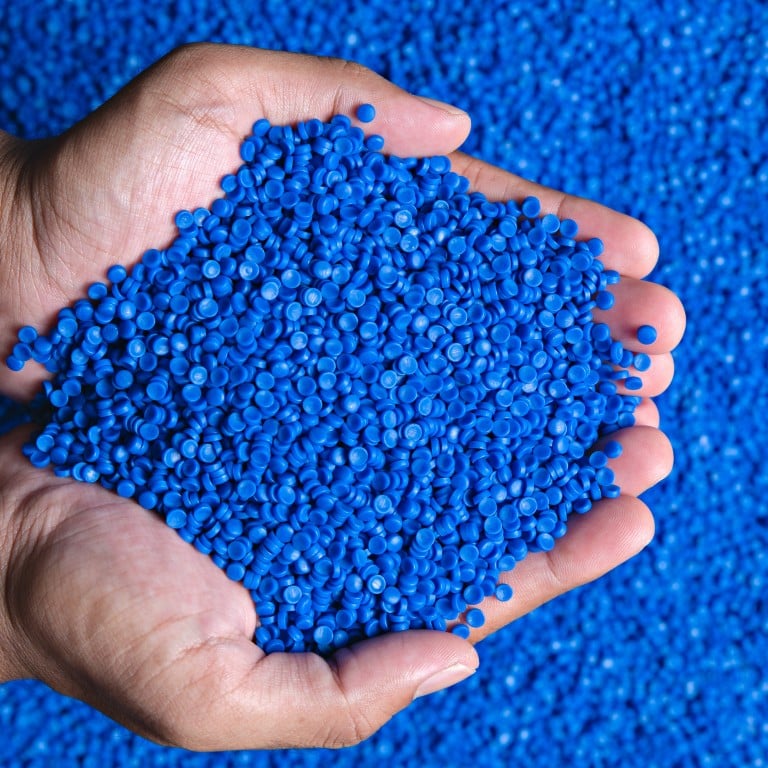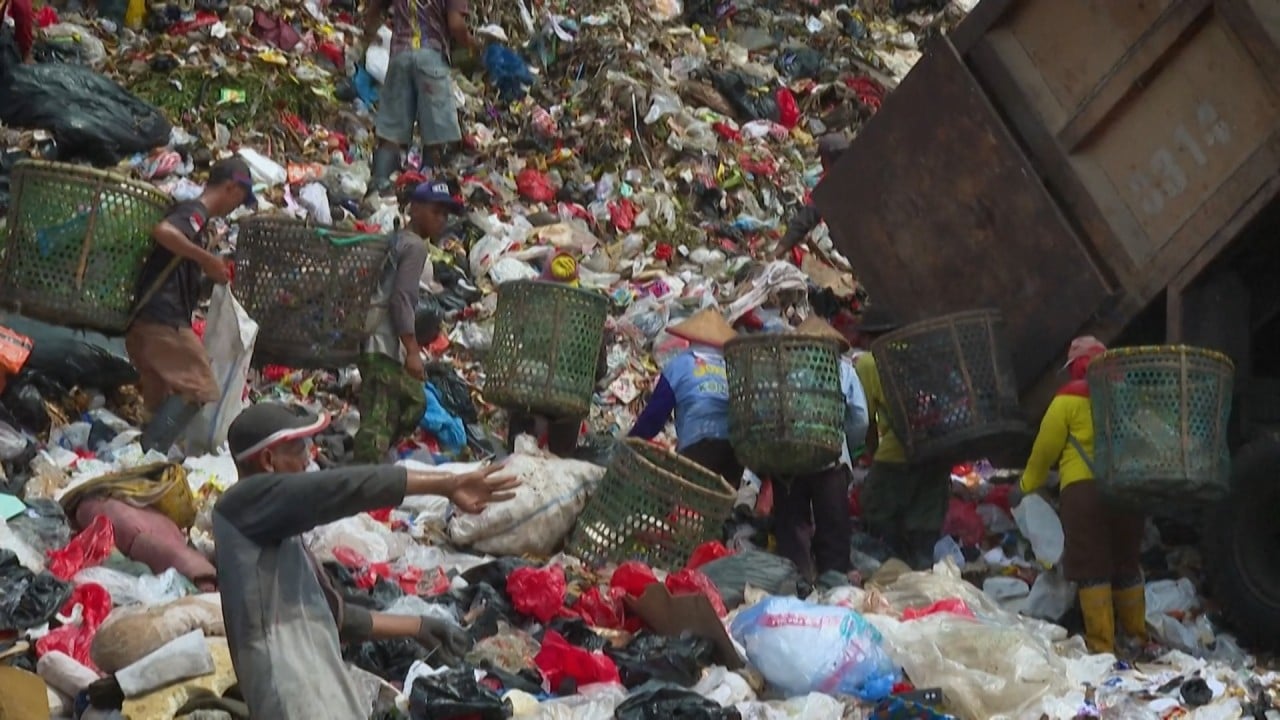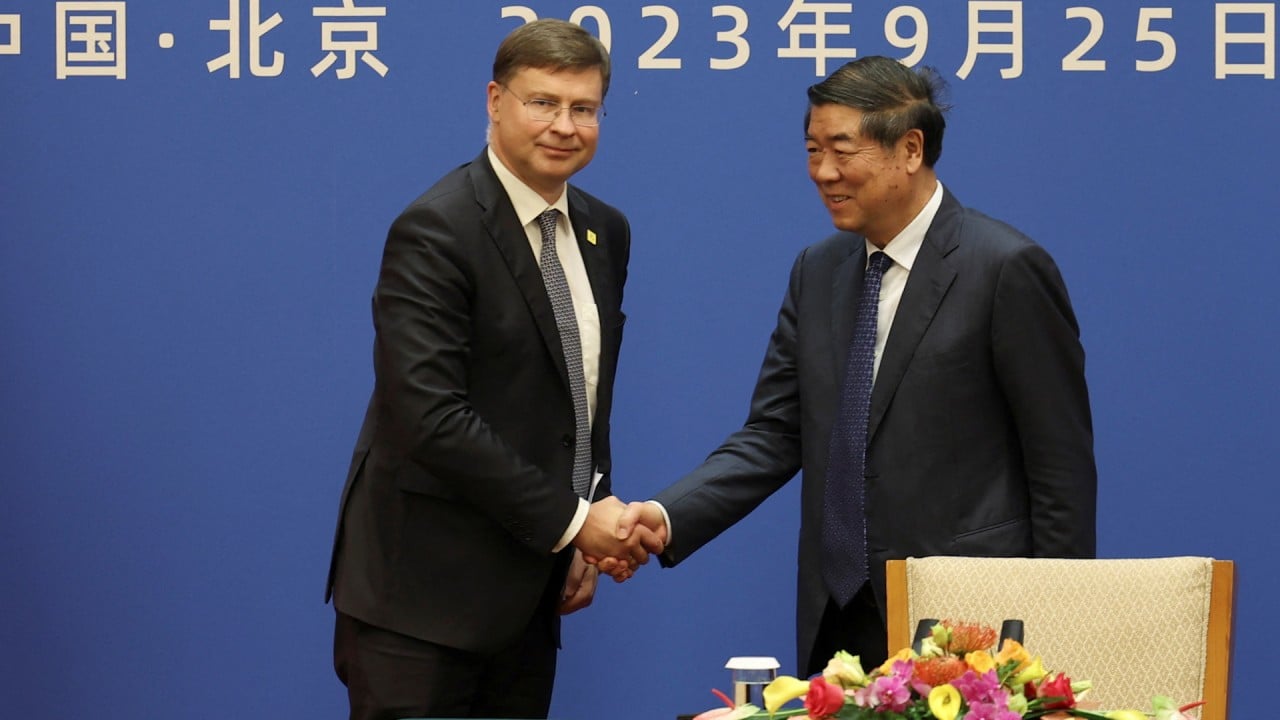
‘Green imperialism’: de facto EU ban on recycled plastics imports sparks row in Brussels
- Last-minute ‘mirror clause’ from France has EU trade officials scrambling to kill landmark packaging rules seeking level global playing field
- EU recycling sector figures warn that if Chinese plastic imports are not curbed, ‘the industry will collapse’
France believes it is only fair that non-EU actors have to abide by the same rules as their competitors in Europe, and so pushed for “equivalence criteria”, also known as “mirror clauses”.
This is designed to create a level playing field, as the EU is seen as the world leader in plastic recycling, with its companies having to foot associated costs.
But the move could rile trade partners who are already upset by Europe’s carbon border tax and other sustainable trading measures. China, for instance, has frequently railed against what it describes as the EU’s “green protectionism”.
EU targets Chinese plastics under drive to counter ‘unfair’ trade practice
Should the recycled plastic not meet the same standards required of producers in the EU, it would not be permitted to enter the single market, threatening huge disruptions to global trade.
European Commission sources see it as a “de facto ban”, given the discrepancies between recycling standards around the world. Exporters from outside the EU would, theoretically, have to buy packaging made in the bloc to meet Brussels’ standards before shipping their goods to Europe.
There are also concerns about how compatible such a clause would be with World Trade Organization rules.
Commission heavyweights are now scrambling to convince member states to vote against the provisional law at a meeting that could happen as soon as Friday.
They argue that no economic analysis has taken place, accusing France of “pure politicking” given that it has a strong recycling industry of its own to protect.
The recycling industry, however, has railed against “unfair competition” from China, pointing to lower labour standards and costs of doing business there.
Paolo Campanella, secretary general of the European Waste Management Association, told the Post that if new rules were not applied to Chinese plastics, “the recycling industry in Europe will collapse”.
“We are importing a lot of material that is labelled as recycled but we have no way of checking. China is one of the biggest sources of that,” Campanella said.
Ton Emans, president of Plastic Recyclers Europe, another industry group, said he “strongly believes in the need to create a level playing field for all actors in the plastics recycling sector by ensuring the EU law is also applicable to actors from third countries”.
China banned the import of plastic waste in 2017 and also has laws forbidding the use of recycled plastics in food packaging. Since then, European industry has observed a surge in shipments of polymers to Europe.
How mainland China’s waste import ban impacted how we recycle plastic today
“Products not manufactured in the EU, including, in this case, products containing recycled plastic, must comply with the environmental and health standards established by the EU framework to make sure that they are safe for consumers and that they respect the environmental goals of the EU, just as the EU products do. This is a level playing field in practice,” Emans said.
The mirror clause is part of broader rules aimed at phasing out single-use plastics in the EU.
All packaging on the EU market will have to be recyclable by 2030, with the bloc looking to outlaw single-use plastic packaging for fresh produce, mini hotel toiletries, and takeaways.
Commission sources described France’s interjection as “unprecedented”, given that it came as an oral submission during a meeting of ambassadors. This was subsequently written into the law by the Belgian government, which currently holds the rotating presidency of the EU.
Equally unusual is the commission intervening to nix part of a law that it initially proposed. It marks the latest internecine feud among lawmakers, bureaucrats and diplomats, as tensions rise ahead of EU elections in June.
A series of green laws have been watered down or scrapped as politicians nervously eye the rise of the far-right and as Brussels reels from a series of destructive farmers’ protests.
Rules requiring sweeping human rights audits for corporate supply chains ran aground after Germany and Italy withdrew support, much to the ire of members of parliament, who accused them of bowing to corporate interests.
Belgium is now scrambling to save the law before it hands over the presidency to Hungary in July.
Of the 27 EU members, only Latvia voted against the law, arguing that it would prove too burdensome to administer. Germany and Hungary abstained.
The final text will now go to a vote at the European Parliament’s trade committee, before a vote of all lawmakers probably early next month.



